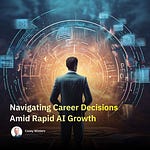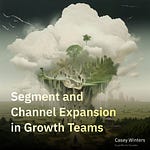More selfcasts coming your way. These are more bite size than my usual blog posts, and can be consumed by audio above or text below.
I want to talk about the fundamental differences between strategy-oriented individuals and product-oriented individuals within software businesses. Having had the experience of managing both, I can assert that strategy people pose significant challenges in software environments. The main reason is their tendency to pursue bold, high-stake decisions without considering iterative cycles—something essential to software development. It’s more phrased as do this whole thing and win. Unlike other industries, such as film-making or hardware production, software thrives on iteration cycles. These cycles enable us to embed feedback loops into our development processes and learn continuously from what works and what doesn't, which often leads to surprising outcomes.
On the other hand, strategists often operate under the assumption that they can foresee the future. Despite their extensive reading and theoretical knowledge, they often neglect a crucial lesson from the book Seeing Like a State that iterative, adaptive planning is more effective than rigid, top-down visions like how markets and nature work.
Product documentation typically outlines what we aim to learn and how these learnings will shape future decisions. Such an approach, often expressed in if-then statements or decision trees, highlights a culture of continuous improvement. This method is rooted in the product developers' need to live with the direct consequences of their choices, fostering a humble attitude focused on learning and adapting rather than merely predicting.
To draw a parallel, there's a quote from De La Soul that captures this mindset well, albeit in a more colorful language. It suggests that while some people merely talk shit, others “live it”. Product people embody this philosophy—they are embedded in the daily grind and outcomes of their work, unlike strategy-oriented individuals who can distance themselves from the repercussions of their decisions, often attributing unexpected results to flawed execution rather than planning errors.
So, in the teams I manage, strategy is not a job; it is a component of every job. People need to live it.













Share this post